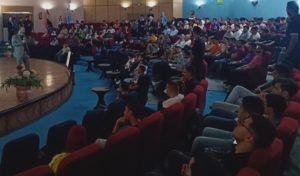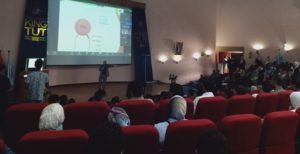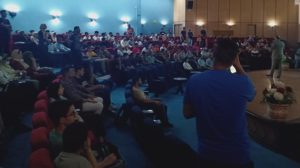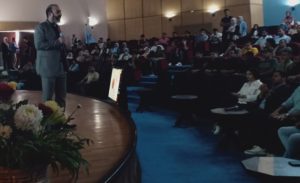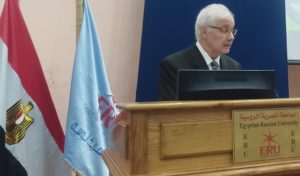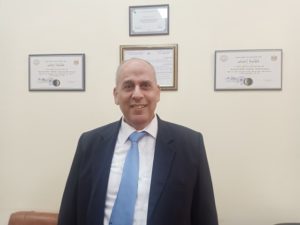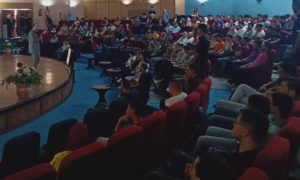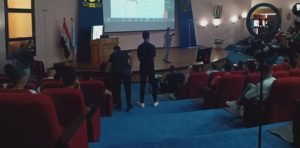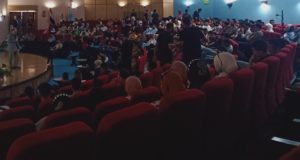An important statement from the Egyptian Russian University for those who are interested in learning electronics.
Dr. Sherif Fakhry Mohamed Abdel Naby, President of the Egyptian Russian University, announced that, as part of the university’s interest in talented students, and investing in these young talents to create a base of competencies capable of keeping pace with the requirements of local and global markets, the Faculty of Engineering launched, for the first time, a series of courses in the field of “electronics.” The process,” under the title “The Path to Empowerment and Professionalism in the Field of Electronics,” and the first of these courses was opened in “Dr. Sherif Helmy Hall” inside the university campus. These courses are available to those interested from inside and outside the university without being restricted by a specific age, whether for secondary school students. University youth, the elderly, and all those interested in the field of electronics. Explaining that these courses are offered under the patronage of Dr. Muhammad Kamal Mustafa, Chairman of the University’s Board of Trustees.
In the same context, Dr. Alaa Mohamed Al-Batsh, Dean of the Faculty of Engineering at the Egyptian Russian University, confirmed that the first session was announced and registration was opened through the university’s website on the university’s social networking pages. The invitation was open for those wishing to attend from inside and outside the university, and attendance was made possible. The course is online via Link Zoom and broadcast live on the university’s official page.. indicating that the upcoming courses will be presented by an elite group of distinguished faculty members specializing in the “field of electronics.”
From his side, Dr. Tamer Saleh, a professor in the Department of Communications at the Faculty of Engineering at the Egyptian Russian University and one of those in charge of teaching and supervising the courses, explained that during the first course, “Electronics Education,” trainees were introduced to electronic components, their shapes and symbols, how to read them, and how to operate them in practice without going into… Difficult physical or academic principles, and circuits were presented in an interesting manner using simulation programs and real electronic components and circuits such as a dark detector or an alarm siren… revealing that the goal of these courses is to develop the students’ capabilities, hone their talents, and prepare a generation interested in practical electronics who understands the principles of electronics and is capable of designing Electronic departments at the republic level.
Dr. Tamer Saleh stated that the series of courses will be announced on the university’s website and will be broadcast and made available directly on the Internet to all those interested, noting that the activities of the first session that were announced are still continuing… pointing out that this course is considered the basic building block and that the advanced courses The upcoming ones will include topics that serve those wishing to delve deeper into the field of integrated control systems, robotics, and the manufacture of self-driving cars, which are important areas for keeping pace with modern technological applications. At the end of the first session, a day will be allocated in the university’s laboratories for the practical application of what was studied during this session, and this day will be announced. On the university website.
It is worth noting that the current session is attended by a large number of students from inside and outside the university and has received great acceptance and welcome, which encourages the completion of the series of courses. Those wishing to participate in the upcoming courses should follow through the following link:
https://www.facebook.com/groups/311213920764161
You can also listen to the recording of the first and opening lecture by accessing the university’s Facebook link:
https://www.facebook.com/eru.university/videos/839917994203135/?app=fbl
